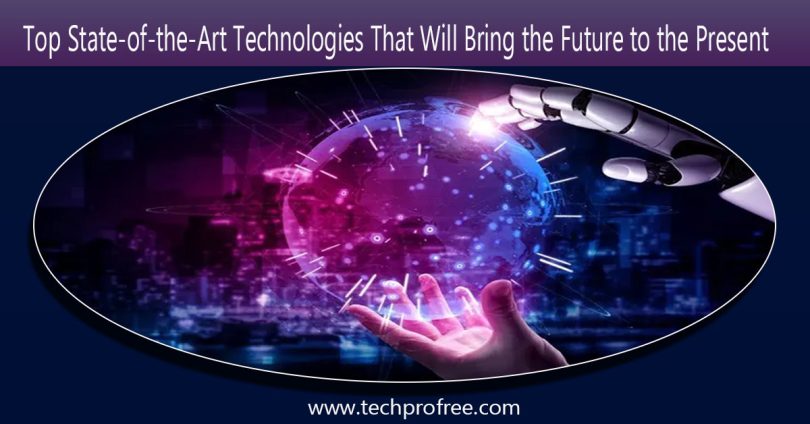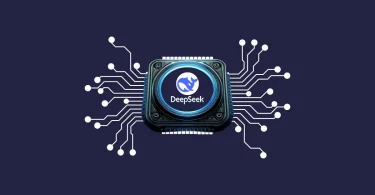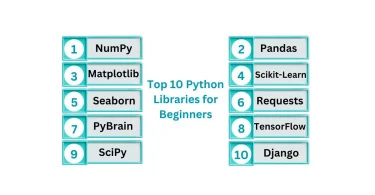The IT industry has traditionally been a hub of invention and in the quickly changing technical environment of today. Businesses must be familiar and flexible to preserve their competitive advantage.
Top state-of-the-art technologies that are revolutionizing the IT sector and influencing the future direction of the digital world are examined in this article.
Artificial Intelligence (AI) and Machine Learning (ML):
Science fiction technologies like AI and ML are becoming essential components of the information technology field. Businesses use these technologies to improve decision-making, automate repetitive operations, and improve client interaction. Advanced analytics, language processing and computer vision are just a few of the areas where AI and ML are being applied, opening up interesting new opportunities for various industries.
Quantum Computing:
The IT business has a great deal of potential to change with the help of quantum computing’s ability to solve challenging issues quickly and accurately. This tech uses quantum bits (qubits) rather than conventional binary bits to acquire new levels of processing capability. It will have an influence on scientific research, optimization and cryptography in the future.
5G and Next-Generation Networks:
The broad adoption of 5G networks (also called Next-Generation Network) shows its necessity and importance; it provides higher download and upload rates. It also delivers lower latency and more trustworthiness and is altering data access and utilization. This innovation will enable the Internet of Things (IoT) to reach its full potential and support infrastructure for smart cities, driverless cars and leading-edge communications services.
Edge Computing:
Edge computing has emerged as a tool of reducing delays and improving network performance as more IoT devices produce a lot of data. This technology allows rapid decision-making, reduces bandwidth costs and improves privacy and security by processing data at the network edge, which is closer to its source.
Blockchain:
Blockchain’s worth expands outside banking despite its reputation being tightly tied to cryptocurrencies. This decentralized, open-source ledger system has the potential to revolutionize a variety of sectors by streamlining supply chain management, boosting the security of information and enabling transactions between peers.
Advancements in Cybersecurity:
The IT sector is working nonstop on advanced cybersecurity solutions to combat more complex cyber-attacks. Emerging technologies like quantum cryptography, AI-powered threat detection and zero-trust security frameworks are essential for protecting digital assets and upholding customer confidence.
Augmented Reality (AR) and Virtual Reality (VR):
The primary focus of AR and VR technologies was gaming and entertainment, but they are currently discovering practical applications in a variety of industries, including healthcare, education and retailing. These fully immersive technologies are essential for improving training techniques, facilitating smooth remote collaboration and providing forefront consumer engagement opportunities for enterprises, all of which eventually result in extraordinary user experiences.
Robotic Process Automation (RPA):
Robotic process automation uses software robots to automate routine, rule-based operations, increasing productivity and lowering human error. RPA boosts productivity, slashes operating costs, and simplifies corporate processes by allowing human resources for more important tasks through reduced workload on humans.
Internet of Things (IoT):
The fast adoption of IoT devices resulted in a time when common objects are connected to the internet, creating brand-new possibilities for data collecting, evaluation, and automation. IoT technology has become a potent tool for organizations to optimize business processes, reduce energy usage, and make well-informed decisions based on real-time information. It covers numerous sectors, from smart homes to automation in factories.
Biotechnology and IT Intersection:
Innovations in personalized medicine, genomics, and synthetic biology have been fueled by the merging of biotechnology and information technology (IT), resulting in a transformative era in healthcare. New discoveries are being produced in the areas of drug research, diagnostics, and general healthcare practices by using the power of advanced computing, data analytics, and artificial intelligence (AI). With the help of this strong partnership, medical care will soon be ready to be individualized to each patient’s needs, and knowledge of genetic influences will make treatments more successful and precise. The healthcare landscape is changing primarily as a result of this multidisciplinary approach, offering improved patient outcomes and an innovative approach to making medical findings.
Summing up:
New technologies are constantly being developed in the IT sector, which poses both possibilities and challenges for enterprises. Companies need to invest in these new technologies and stay educated if they want to thrive. This will enable them to work more effectively, develop fresh ideas, adapt to changes and satisfy their customers with even better services and products. Businesses should be open to the future and prepare themselves to take full advantage of these new technologies. By doing this, they can find new possibilities for advancement, maintain an upper hand and flourish in the digital era.




Leave a Comment